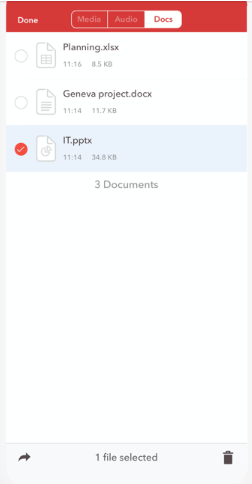Adeya
About Adeya
Adeya Pricing
Please contact Adeya directly for pricing information.
Starting price:
$9.00 per month
Free trial:
Available
Free version:
Not Available

Most Helpful Reviews for Adeya
1 Review
Urs
Oil & Energy, 1,001-5,000 employees
Used monthly for less than 2 years
OVERALL RATING:
4
EASE OF USE
4
VALUE FOR MONEY
4
CUSTOMER SUPPORT
5
FUNCTIONALITY
4
Reviewed June 2020
A secure voice and messaging solution
Having taken over the admin role for our company used Adeya services, I can manifest, Adeya's customer and technical support is very responsive and professional.
PROS- The services and apps on mobil phones are secure, frequently updated and easy to use! - As far as I know, there are no known security incidents or data breaches with Adeya --> I hope it stays that way. - Adeya's device and service management portal is intuitive and functional.
CONSAdmin User Management needs some improvements: - Portal admins must be named users having their unique user-ids and complex passwords. - Portal logins must have a state of the art two factors of authentication (TFA) turned on by default and be enforced
